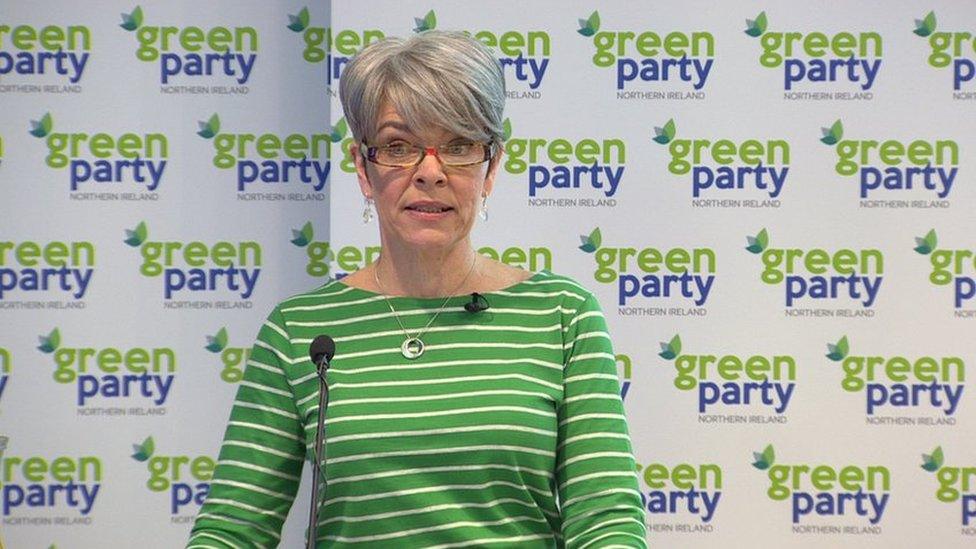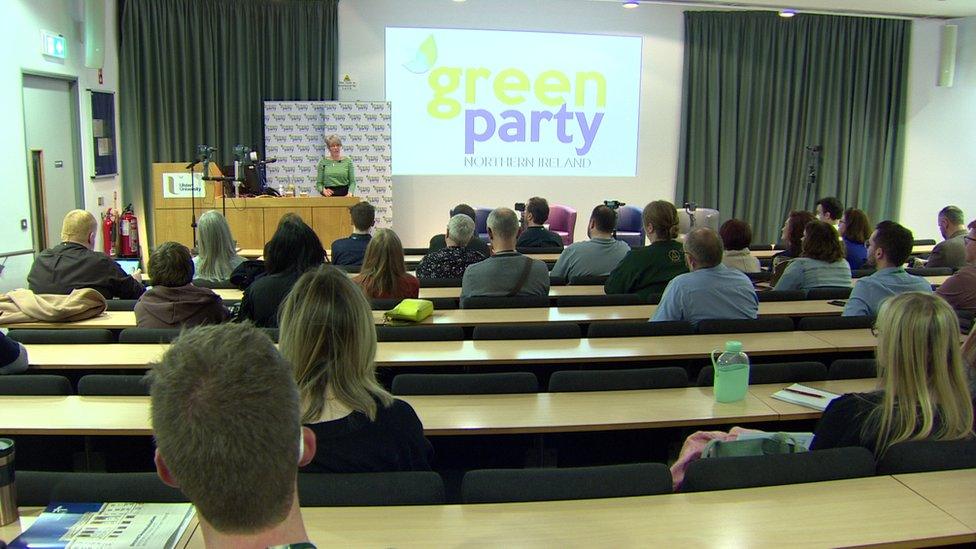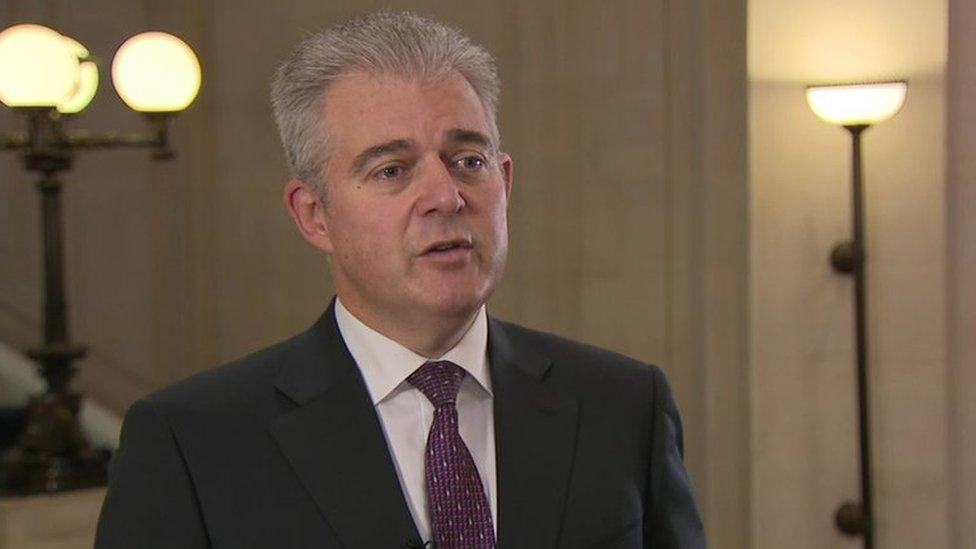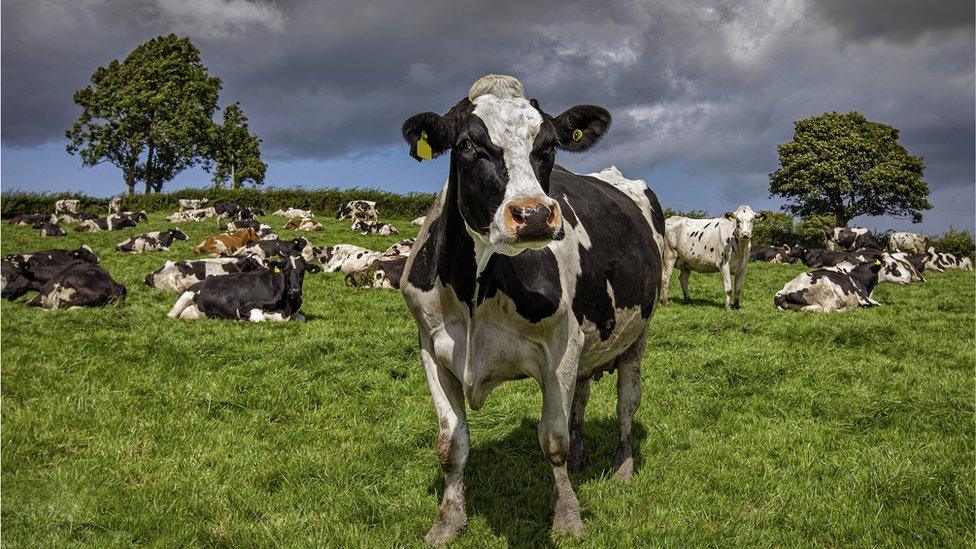Green Party leader Clare Bailey says 'manufactured crises' must end
- Published

Green Party leader Clare Bailey represents Belfast South in the assembly
The Green Party leader says the days of political stalemate in Northern Ireland must be over.
Clare Bailey told her party's conference that the DUP's decision to withdraw Paul Givan as first minister was a "political stunt".
She told party activists: "It's time to put an end to manufactured crises - we want a system that can cope with the issues facing people's lives.
"We need politicians who are willing to do the job they were elected to do.
"No more deadlock, no more stalemate, no more collapse."
Speaking at the party's conference in Belfast, the Belfast South assembly member (MLA) also criticised the current deadlock over Stormont's budget.
She told activists: "There are literally hundreds of millions of pounds sitting there, whilst the most vulnerable in our society struggle to make ends meet.
"This is an entirely avoidable situation, and one completely of the DUP's making."

The Green Party are running candidates in all 18 of Northern Ireland's constituencies
Much of the talk at this year's conference was about the assembly election on 5 May .
The Green Party is running candidates in all 18 constituencies.
The party currently has two MLAs and believes gains can be made.
In her keynote address Clare Bailey said: "More Green MLAs mean more delivery on the issues that matter.
"It's time to get your feet on the streets. It's time to get your greens elected."
Climate bill battle
Clare Bailey also talked about the party's role in securing climate change legislation at Stormont and said it was pressure from the Green Party that helped push the bill through.
She was critical of other parties for backing amendments which in her view weakened the legislation.
In her speech, she told party colleagues: "It shows that - when it comes down to it - our traditional political parties will not make the hard but necessary decisions that go with climate action because this would require them to think beyond elections and votes."
The conference also discussed criminal and social justice issues, gender equality and the crisis in Ukraine.
Related topics
- Published8 February 2022

- Published1 March 2022
